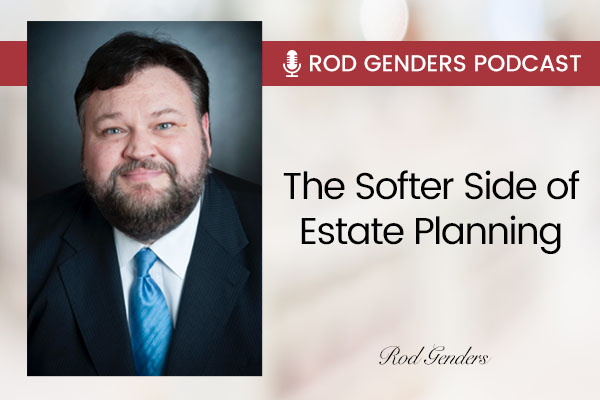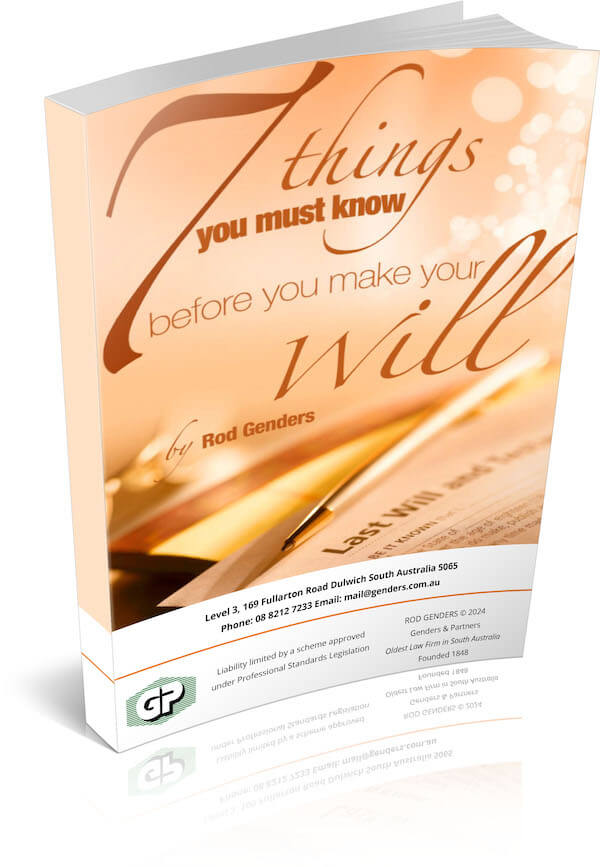

A long time ago (1983 actually), Sean Connery came out of 007 retirement to make an unofficial James Bond movie called Never Say Never Again. In one scene he pretends to be a masseur at a health spa, and suggestively says to Kim Basinger: “Hard or soft … massage?”
This movie-line must have stuck in my brain all these years, because it suddenly seemed like a good way to highlight some important considerations in modern integrated estate planning – Hard or soft … estate plan?
What is the Softer Side of Your Estate Plan?
Identify, document and share your wishes for end-of-life care, the care of your pets, the custodianship of your special assets, who your carers will be, where will you live if you lose your independence, and more.
You might be familiar with roles such as agent under power of attorney, Executor of a Will or Trustee of a Trust.
These estate-planning documents deal with a lot of crucial issues: the control and distribution of assets, the management of finances and the coordination of all sorts of legal & financial issues.
But what about the “softer” decisions that these documents don’t cover – important topics like attitudes toward receiving care at home or in a facility, or whether someone would prefer to die at home or in a hospital. What about end-of-life decisions and attitudes toward life-sustaining care? Which nursing home to choose? Who will provide the care and where and what type of care?
Modern integrated estate planning includes making provision for the appointment of guardian-style positions, so that persons whose judgment is trusted may be lawfully authorised to make decisions and sign documents to do what is best in various situations dealing with the softer, nonfinancial issues that could arise in later years.
This is where a document called Advance Care Directive (aka Medical Power of Attorney) becomes very important, to help you define and document some of these ‘softer’ issues.
Some of these issues relate to accommodation, lifestyle, care plans, medical treatment and end-of-life wishes. It could include directives for providing for the care of pets or how you’d like your loved ones to balance your care with their own quality of life.
As I record this podcast, the Australian State of Victoria has just today passed legislation permitting voluntary euthanasia. This may well open the floodgates for similar laws around the country. This is a topic that families need to discuss, so that everyone’s wishes may be known.
Guardianship – for Young and Old
If you have minor children and have designated guardians to care for them if something should happen to you, you of course need to inform the guardians and make sure they’re OK with the responsibility. In addition, take the next step and communicate to your designated guardians about your priorities and values as a parent – your attitudes toward their education, spirituality, and financial matters, for example.
Similar considerations apply to provisions for guardians of people who might lose their capacity.
Attitudes Toward Life During Dementia and End-of-Life Care
Given the increased incidence of dementia in the developed world, as a consequence of longer life expectancies, it’s worth thinking through and communicating to your loved ones your attitudes toward your care and quality of life if you develop dementia. Would you prioritise in-home care above all else, or would care delivered in a facility be agreeable if it improved your spouse’s quality of life? Would you want your spouse or other loved ones to try to care for you themselves for as long as possible, or would you rather they delegated those responsibilities to paid caregivers, assuming the family finances could support it?
How would you like your loved ones to balance your quality of life with their own? How would you like them to balance your health and safety with your own quality of life? How important would it be to you to receive daily visits from your spouse and other loved ones, even it meant that those obligations would detract from their ability to travel or pursue other activities? Would you prefer to keep your decline as private as possible, or would you rather be out in public interacting with people no matter what? There’s no “right” answer to any of these questions, but talking through them can help your loved ones be at peace with the decisions they could eventually make.
Attitudes Toward Funerals, Burials, Etc.
Many people make plans for any funerals/memorials and the disposition of their bodies well in advance; the approach to these issues might be influenced or even predetermined by culture or religion. But for other people, attitudes toward these matters aren’t obvious at all, so it’s useful to spell out your wishes in advance, either verbally, in writing, or both. Some people would prefer to be buried rather than cremated, but burial nowadays requires a long-term financial commitment in the form of a cemetery plot-license. Many younger people don’t see the point of funerals at all, and the trend towards private ceremonies is increasing. Even the number of Death Notices in newspapers is declining, because fewer people read newspapers anymore.
Attitudes Toward Care of Pets
It’s a cliché to say that pets are like family members, but for many people, that’s absolutely the case. You can actually lay the groundwork for continuing care for your pet as part of your estate plan. The gold standard is a pet trust; through such a trust, you detail which pets are covered, who you’d like to care for them and how, and leave an amount of money to cover the pet’s ongoing care. Alternatively, you can use a Will to specify a caretaker for your pet and leave additional assets to that person to care for the pet; the downside of this arrangement is that the person who inherits those assets may not be legally bound to use the money for the pet’s care.
Attitudes about Disposition of Personal Possessions
Are there specific physical assets you’d like to earmark for children, grandchildren, nieces, nephews, or friends? If so, your estate-planning lawyer can help you document your wishes about the disposition of those assets in your Will so there’s no confusion.
SPECIAL REPORT “7 Things You Must Know Before You Make Your Will”
In this report you will Learn:

Why home-made Wills can be a LOT more expensive than you might think.
The secret weapons used by the rich & powerful to protect their assets, and transfer their wealth two or three generations ahead.
How Estate and Trustee Companies make BIG money from “free” Wills.
The Most Common Estate Planning Mistakes, how they can cost your family a fortune, and How to Avoid Them.
The Elements of a Sound Estate Plan – why a Will alone is not enough.
How to Make Sure Your Assets Stay in Your Family and are not lost to creditors, lawsuits or ex-spouses.
How to guard against challenges to your Estate after you’re gone.







